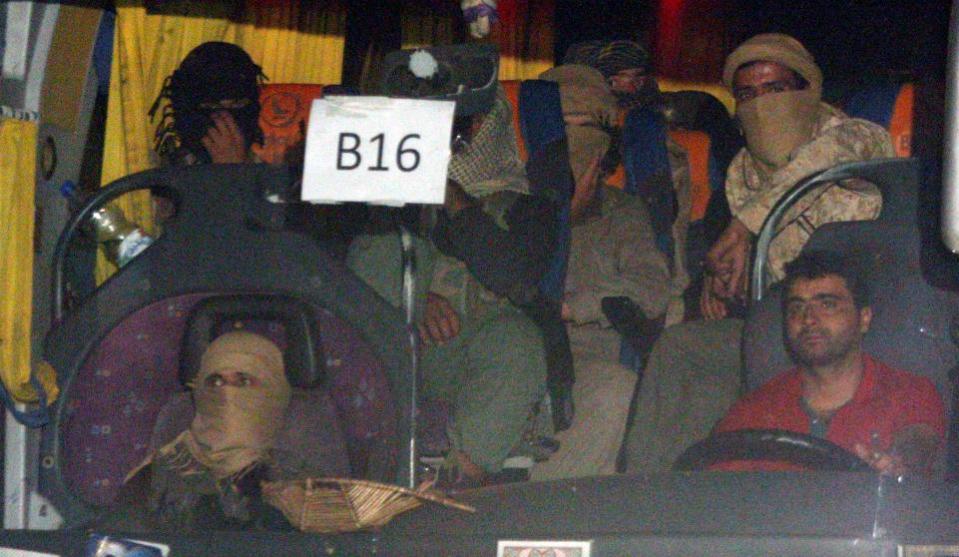Baghdad, Kurds Angered by Lebanon's ISIS Deal
A deal between Lebanon and the Islamic State militant group (ISIS), brokered by the country's Shiite militant group Hezbollah, has provoked anger in Baghdad and among Iraqi Kurds after hundreds of jihadis were bussed to the Iraqi border.
The evacuation was the first publicly announced agreement between ISIS and another country for the movement of its fighters.
The deal saw around 300 ISIS fighters and 300 family members and civilians transported to eastern Syria in return for the bodies of Lebanese soldiers captured in 2014 and killed by the group. It ended ISIS's presence on the Lebanese border with Syria where the military had been battling ISIS jihadis for years.
"Honestly speaking, we are unhappy and consider it incorrect," Iraqi Prime Minister Haider al-Abadi told reporters Tuesday. "Transferring terrorists from Qalamoun (an area on the Lebanese-Syrian border) to the Iraqi-Syrian border is worrying and an insult to the (Iraqi) people."
"There must be no chance for Daesh to breathe," he continued, using an Arabic acronym for ISIS.
The main security body of the Iraqi Kurdistan region also condemned the deal, questioning the motivation of the Syrian regime and its key Lebanese ally for dealing with the jihadi group responsible for capturing swathes of Syrian and Iraqi territory since 2014 and the murder of thousands.
“We as the Region’s Security Council express our concerns about this action and consider it suspicious. This raises many questions. We hope that all relevant parties in the region take a serious stance on this action,” it added.

Iraq, led by a Shia-majority govrnment, has been a key supporter of the battle to defeat ISIS in Syria, as well as in its own territory. It is cooperating with the U.S.-led coalition that has been conducting an airstrike campaign against the group since mid-2014. But the deal with ISIS appeared to cross a red line in Baghdad, which has pledged to eliminate the group.
Months before the deal, the Syrian regime said both Damascus and Moscow's air forces were targeting ISIS in eastern Syria. Its force have encirled the militant group in a large desert stretch of central Syria. The Assad regime has faced accusations that it has allowed ISIS to prosper and grow in eastern Syria amid six years of civil war.
Hassan Nasrallah, the elusive leader of Hezbollah, defended the decision in a speech Monday. "We came and took responsibility by going to negotiations," he said. "Hezbollah's answer was categorical, that is, any solution, whether it be partial or whole, must first include the fate of the soldiers."
Nasrallah said ISIS had requested a ceasefire but that was refused, and ISIS subsequently agreed to the deal when they realized they would not be victorious. "It collapsed and surrendered after a decisive battle. So they had no choice but to accept our conditions," he said.
The agreement saw the air-conditioned buses move the ISIS members from Qalamoun on the Lebanese border to the town of Abu Kamal in the eastern Syrian province of Deir Ezzor. The jihadi group retains majority control of the province, including the cities of Deir Ezzor and Mayadin.
Related Articles


